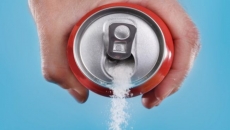Proper nutrition serves as a foundation for fertility as the food we consume can have a big impact on one's ability to conceive. It drastically influences both male and female reproductive health. With informed dietary choices, individuals can improve their fertility potential and increase their chances of conceiving.
Key Nutrients for Fertility:
When it comes to conceiving, certain nutrients play an important role in supporting reproductive function. These include:
Folic Acid: Critical for fetal development and reducing the risk of birth defects
Omega-3 Fatty Acids: Support hormonal balance and promote overall reproductive health
Iron: Important for maintaining healthy blood levels and fertility
Vitamin D: Vitamin D is also crucial as it helps with egg maturation and embryo implantation
Zinc: It is necessary for sperm production in men
Eating a nutrient-rich diet not only boosts fertility but also increases the chances of having a healthy pregnancy. Foods like leafy greens, nuts and seeds, fatty fish, and lean meats prepare the human body for conception.
The Impact of Sugar and Processed Foods
Consuming high levels of sugar and processed foods can hurt fertility. These foods may taste delicious, but they can damage our bodies in the long run. Excessive consumption of sugar has been linked to various health issues like obesity, diabetes, heart disease, and even cancer. Processed foods are full of artificial ingredients and preservatives that can trouble our metabolism and gut health. They also tend to be high in unhealthy fats and sodium, which can lead to high blood pressure, inflammation in the body, disturb hormone levels, and negatively impact reproductive function. By limiting these items intake and focusing on whole, nutrient-rich foods, individuals can make their bodies more fertility-friendly.
The Role of Hydration in Fertility
Staying hydrated is important for overall health, but it also plays a significant role in fertility. Proper hydration is often overlooked. Proper hydration ensures that all bodily functions are working optimally, including reproductive health. Staying hydrated supports the body's natural functions, including hormone balance and the production of cervical mucus. Dehydration can lead to a decrease in cervical mucus production, making it harder for sperm to reach the egg and implant successfully. In addition, being properly hydrated can help regulate hormone levels, support egg quality, and enhance uterine lining thickness—all factors are important in fertility. It's recommended to drink at least 8-10 glasses of water a day, but individual needs may vary depending on factors like activity level and climate.
Creating a Fertility-Focused Meal Plan
Developing a meal plan that is rich in fertility-supporting nutrients foods is key to improving reproductive health. Incorporating a variety of fruits, vegetables, whole grains, lean proteins, and healthy fats can provide the body with the essential nutrients it needs for hormonal balance and optimal fertility. One should focus on maintaining blood sugar levels throughout the day by including complex carbohydrates like quinoa and sweet potatoes. Additionally, prioritize healthy fats from sources like avocado and olive oil to support hormone production and should aim to drink plenty of water throughout the day. And finally, consider consulting with a healthcare provider or nutritionist for personalized guidance for specific needs and goals.
In conclusion, by paying attention to the foods you eat and making conscious choices you can improve your reproductive health and can conceive and maintain a healthy pregnancy. Prioritizing nutrient-rich foods, staying hydrated, and avoiding processed food items can lead to a successful fertility journey.






